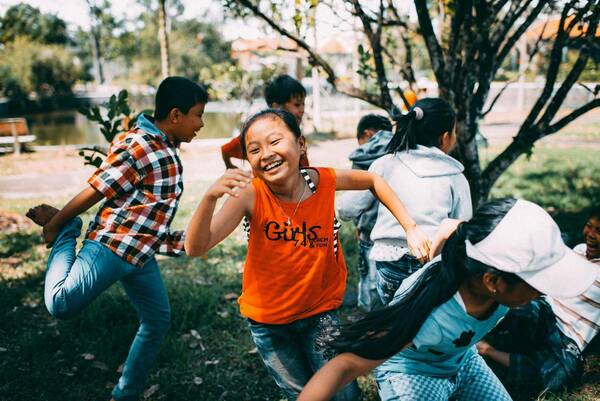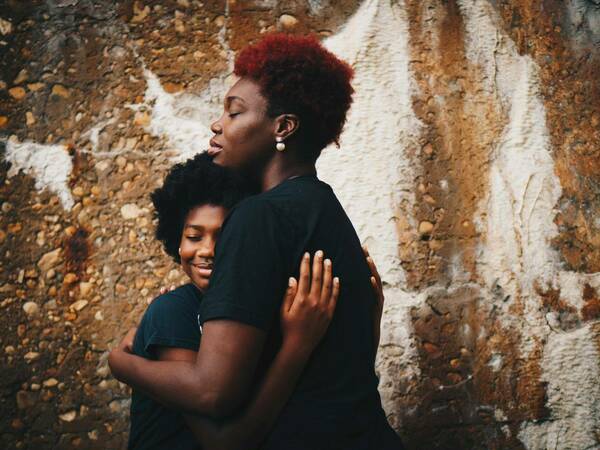

Like any good friendship – LEO project partnerships begin with conversation - an ebb and flow that leads to a deeper connection. We don’t ask organizations to blindly submit an application and hope we say “yes.”
Getting to yes
Sometimes, the best ideas start with a simple, relatable concept. Let’s learn from one of our partners in Atlanta. This organization’s mission is to break the intergenerational cycle of incarceration through a familiar idea: an annual summer camp for children whose parents are in jail. The brilliant effort of a small but mighty organization with only seven full-time staff members, they believe in their work and the children they serve, and desperately want to make an impact.
After our first few conversations, the LEO team saw two big challenges around demand and enrollment numbers, that would make it hard to jumpstart a study.
We told the organization: “We love your work, we want to support your mission and we think research in this space is really important.” But a few things gave us pause to proceed: 1) we needed them to work with their referral partners to increase marketing/recruitment to provide “excess demand”, and 2) they would need to commit to several years of enrollment into the study to increase sample size – both essential to begin to track data in support of the program’s efforts.
I was sure this ask would be too much -- it meant a huge shift in the way they normally fill seats for camp each year. Impressively, the organization moved forward undeterred and determined. They spent the next several months working with their referral partners to find creative new ways to market and recruit for the program. They are wrapping up their research design and preparing to launch their first study with LEO.
The project development role
Even though we refer to our initial phase as “vetting,” it’s happening on both sides.
We work together with potential partners to think through the high-level details of a potential project. We ask critical questions: What program do you want to study? What outcomes do you want to measure? Who do you serve in the program? Is there a pathway to randomization? Over the course of 5-10 conversations, we have a potential partner who understands the basics of a randomized control trial (RCT), who has a high-level plan for their project, and who is excited to move forward and begin research design.
As Project Development Manager, my job is to listen, learn, build relationships, and educate potential partners on the components of research while keeping the LEO mission in mind: to eliminate poverty by shedding (rigorous, quantitative) light on the great work our partners are doing throughout the US.
Most of our partners have never done an RCT… some may not know what an RCT is. But all potential LEO partners share basic tenets:
- They care about the people they serve
- They have a vision to solve the root causes of poverty
- They offer thoughtful interventions
- They nurture a culture of learning
Of course, not everyone is ready to do rigorous research. It is a discernment process of ups and downs -- sometimes “yes,” sometimes “no,” sometimes “not yet.” Our hope is that some day those organizations will come back and say “I’m ready!” and partner with us down the road.

“Not yet” vs. “No”
At times, we have to take a pause rather than proceeding with potentially strong partners. This can be heart-wrenching but we know that the project will be more successful if we wait. This was the case with a national organization that pairs vulnerable children ages 4-6 with a salaried, professional mentor who stays with them through graduation.
We initially connected with potential partners from the organization’s national office who were very engaged and interested in partnering with LEO and testing their model. We had to tell them they weren't ready for two reasons: (1) we need multiple local chapters to commit to research, increased referrals with their local referral partners, and agreement to randomize so that we have an ample sample in the study and (2) this organization works with children who are at risk of entering the foster care system and one of the main outcomes they hoped to measure was foster care prevention. Access to that type of data is very challenging, and it is nearly impossible to get across several states. We knew we needed surveys in order for this study to be a success.
Over the next year, we worked hand-in-hand to identify potential sites to participate in the project, to create buy-in, and to make sure we had enough committed chapters to reach the appropriate sample size.
At the same time, the organization was able to raise the funding to cover the costs of surveys.
This marked success is a testament to the organization’s hearing “not yet” instead of “no.” Indeed, given the incredible need for research in the foster care space, to join hands as their evaluation partner a year later.
Call to action
Please join us! If you’re a non-profit organization interested in doing research, we would love to hear from you and explore opportunities for partnership. It would be a joy to build evidence with you! If you are interested in discussing evidence-building, please reach out to me at fkgallagher@nd.edu.
Pride in Numbers: We began the vetting process with 80 organizations and invited 10 organizations to apply for a recent Cohort
Originally published by at leo.nd.edu on March 31, 2022.